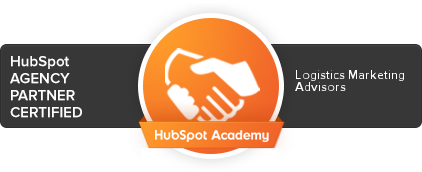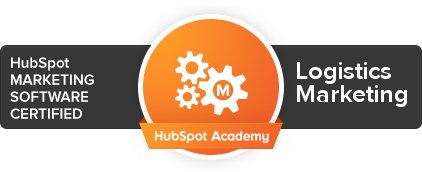You think your logistics business has a compelling value proposition and you try to get prospects to pay attention, but it’s hard.
Very few care.
You could try and get more people to care. Think UPS. For years, they told the world “we love logistics,” which artfully begged the question, “Shouldn’t you, too?”
But if your marketing budget is closer to UPS’s departmental lunch meeting bill than its total marketing spend, you may want to accept the fact that the vast majority of potential buyers just don’t give a damn about what you have to say.Not because it’s a bad message, but because it’s not relevant to their situation and they simply don’t have time to pay attention.
Accepting this fact is actually very freeing for marketers because it allows us to craft a far more targeted, and therefore more powerful, message. But for many it’s hard to do because it means embracing a mindset that says you need to shrink your market in order to grow.
“Hmmm, how can we grow by shrinking our market? Shouldn’t marketers be looking to EXPAND their company’s markets?”
When it comes to logistics products and services, not always. Here’s why.
You may not need a lot of new customers
If you’re selling a high-value logistics product or service, you may only need a handful of the right kinds of customers to meet sales goals.
In a previous blog, I asked the philosophical question: “Would you rather be liked by many, or loved by a few?” For companies selling high-ticket deals, I think the answer is easy. Why water down your message in order to create wide-scale appeal if most of those prospects aren’t likely to buy?
Buyers hate generic sales come-ons
My research with logistics buyers indicates that their #1 complaint about logistics vendors is that salespeople reach out with no knowledge of the company they are approaching and, in some cases, no knowledge of the unique logistics challenges of the company’s industry.
One typical quote from our survey: “Learn about our business and determine specifically how you think you can help before contacting us at any level.”
If you’re thinking “We don’t really have the time or resources to develop a good understanding of each prospect’s specific situation,” then maybe you’re casting too wide of a net for high-value sales. The task is daunting for thousands of prospects, but manageable for dozens or even hundreds over a period of time.
No prospect expects you to have detailed knowledge of how their supply chain works. That’s insider stuff. But with a little digging you can determine things like container volumes and transportation lanes and recent business changes that could trigger a warehousing need.
It’s kind of like preparing for a trip to France. You don’t have to become a fluent French speaker, but locals appreciate it if you make the effort to learn common phrases. It could spell the difference between a clerk’s helpful response or being ignored as the ugly American and overpaying for your crepe.
Shippers don’t buy from generalists
Typically, shippers are not looking for a “dray provider,” they are looking for something more specific, such as “an asset-based dray company with significant assets in Charleston and the ability to transload.” They’re not looking for a “TMS system” but a “cloud-based, global TMS that automates workflows for air and ocean shipments.”
Buyers don’t want to meet with dozens of providers, and they don’t have to. There is so much information available to them, before even engaging with providers, that they can narrow their choice down to a handful of prospective partners whose value propositions align precisely with their need.
The more general your message and the wider you cast your prospect net, the less likely you are to be found and to land on these RFP short lists.
Can you have multiple logistics value propositions?
Yes, you can have a different positioning and marketing message for different markets and personas. But there’s a cost to being an “expert” in these different markets (operational know-how, sales specialists, added marketing chops). If you don’t want to be a poser and you’re willing to make these investments, you can certainly have division-specific or product-specific messages aimed at different buyer personas.
But, whether it’s a company-specific message or a product-specific message, what matters most is gaining an understanding of the specific buyers you are targeting. Their needs, frustrations and fears. These will be wildly different for a mid-market food company with a domestic supply chain and a large electronics giant who sources from China.
Figure out which buyers align best with your value proposition and talk directly to them using their own language. And yes, do it to the exclusion of others. Remember, few buyers have the time or inclination to care about what you say. You may as well talk to those who might.








